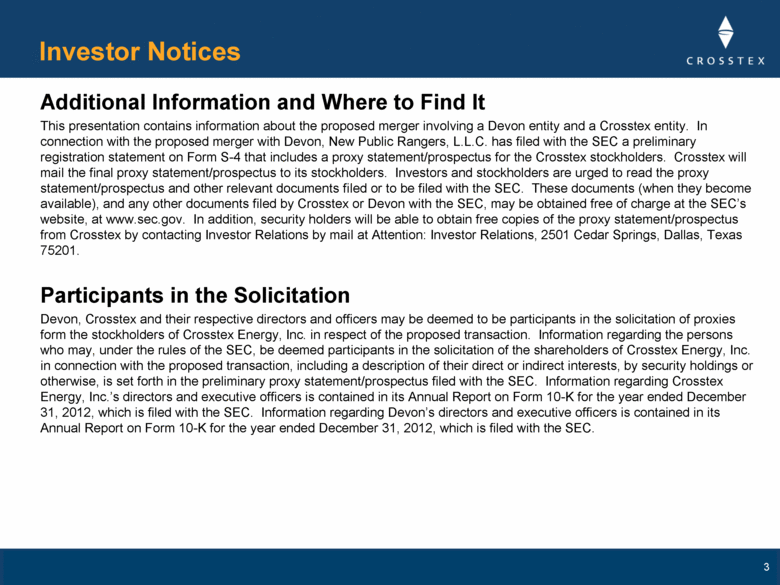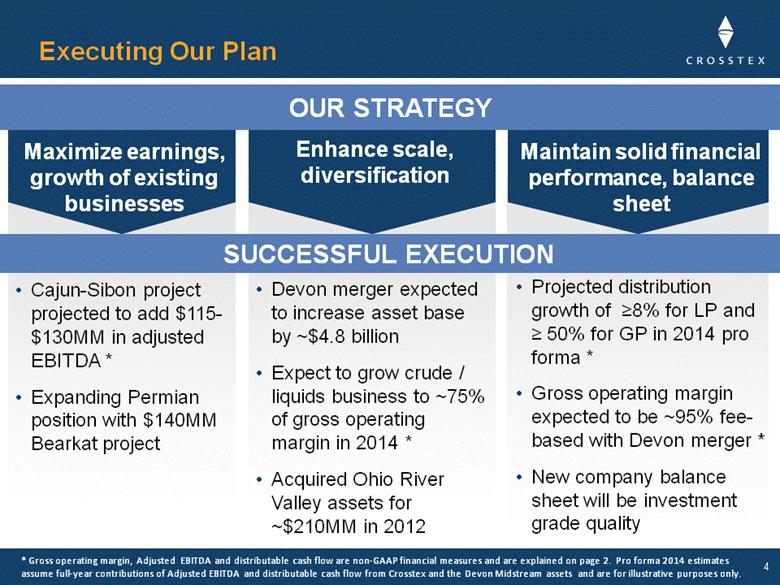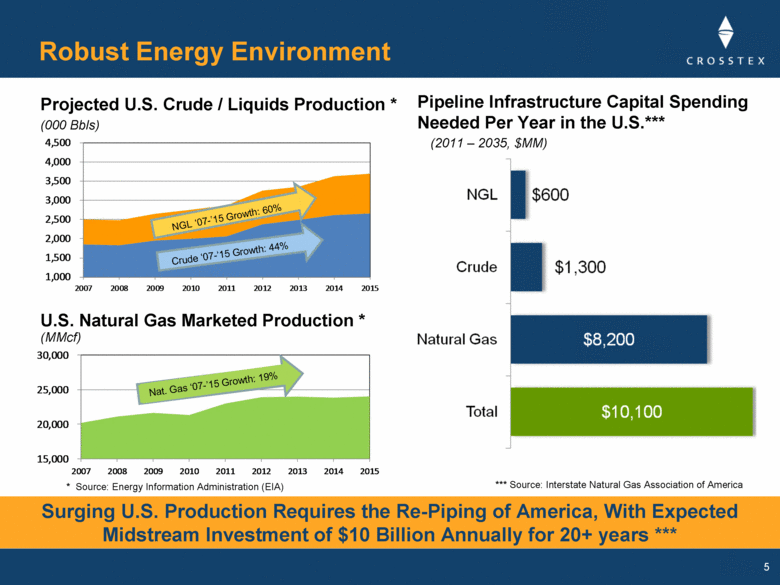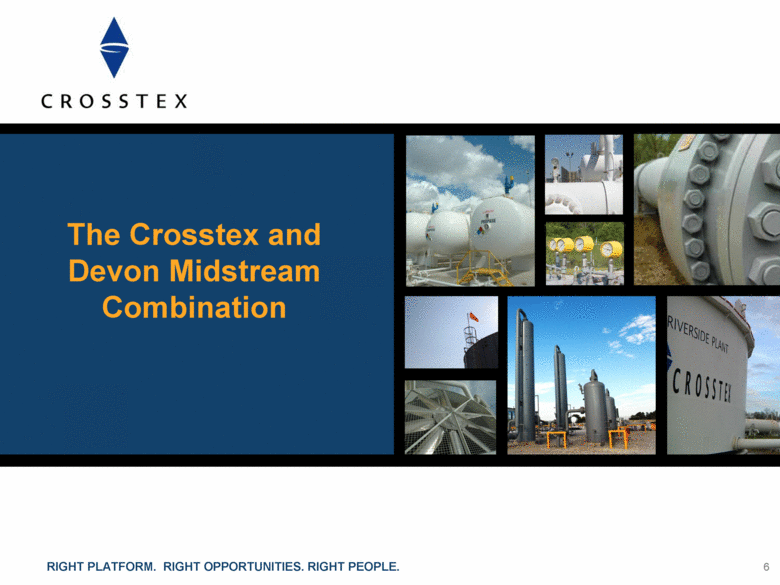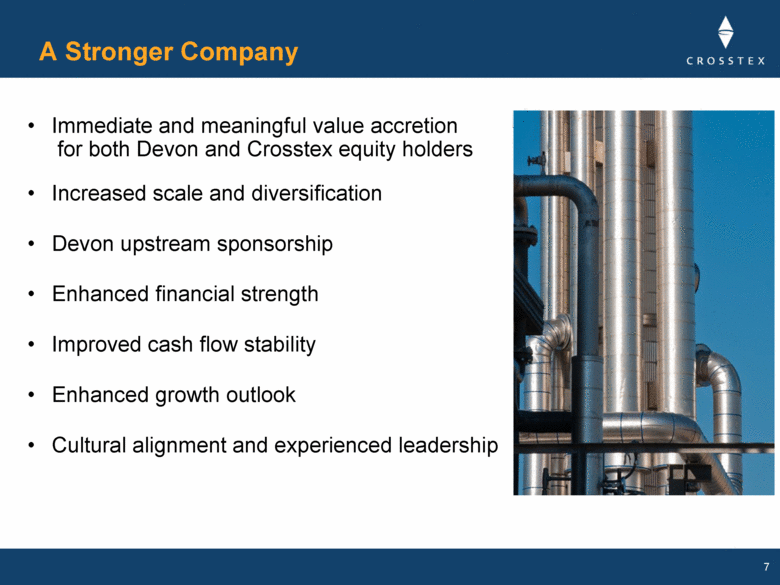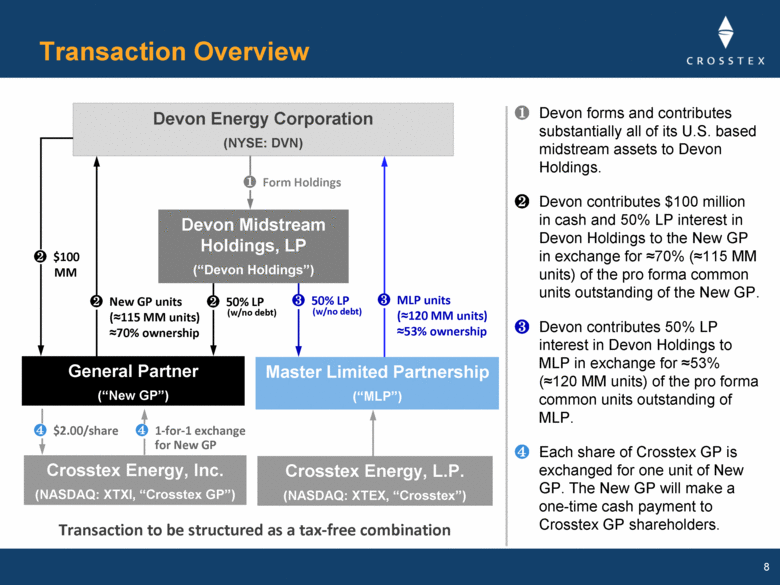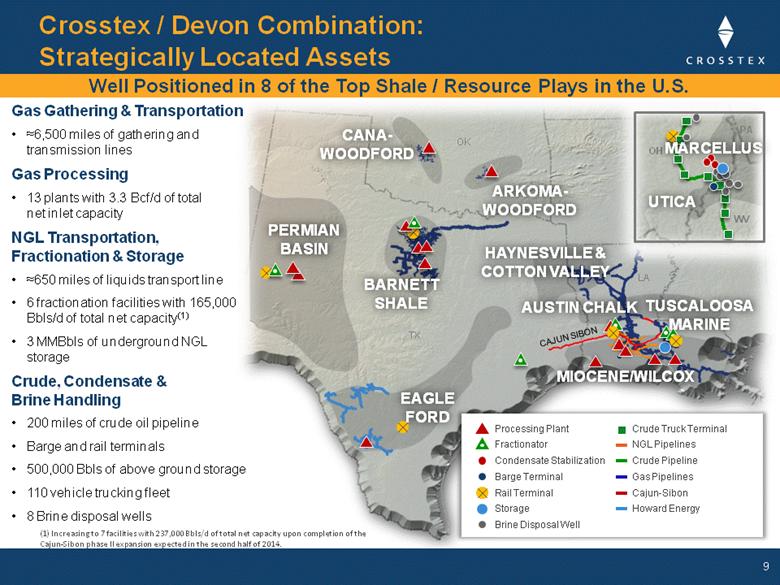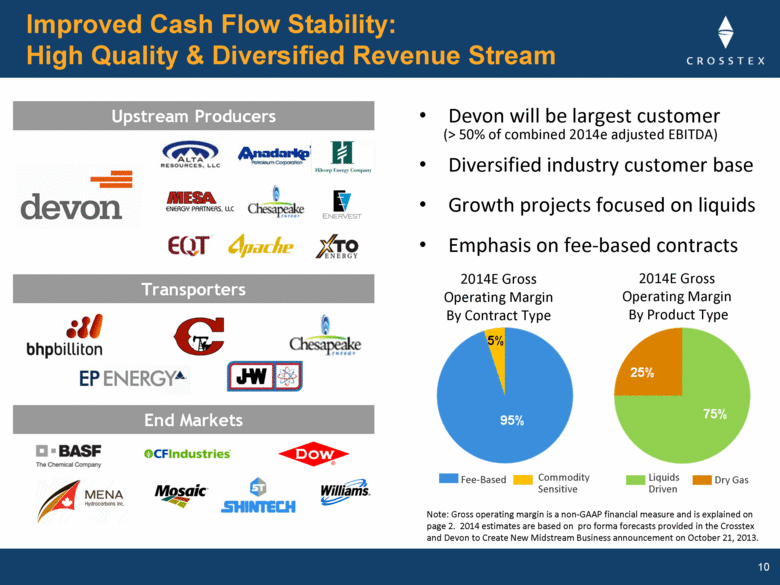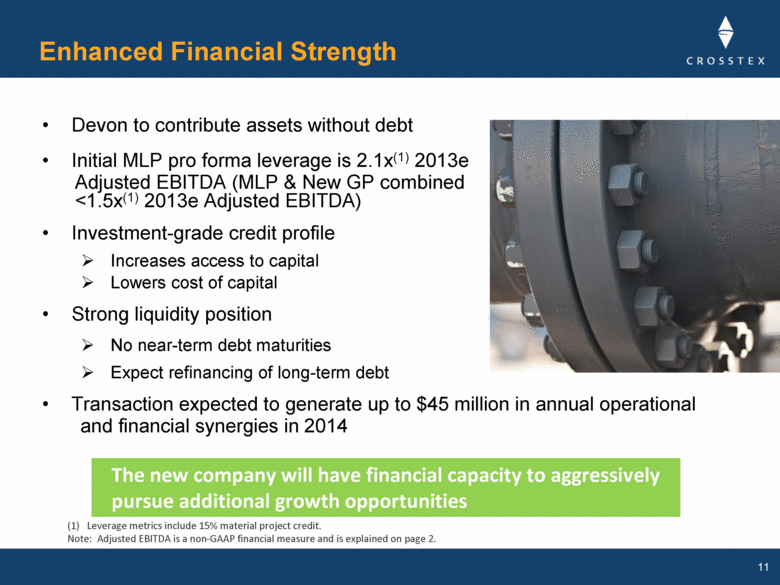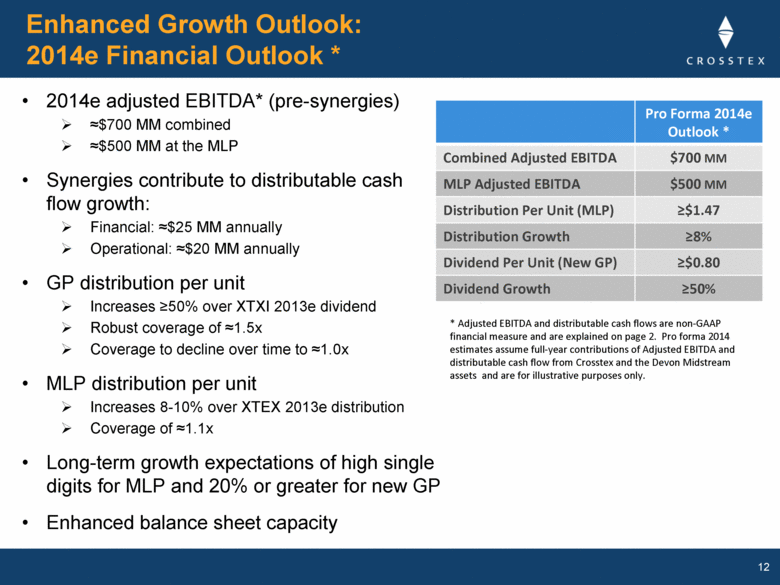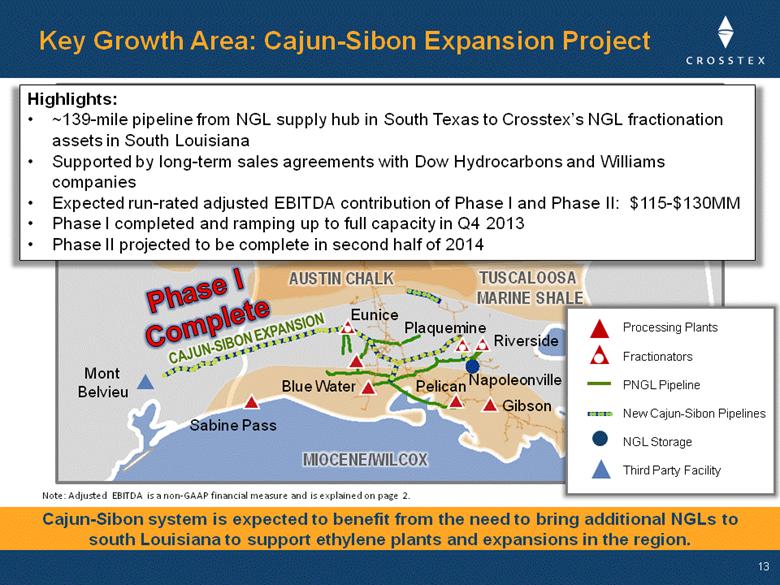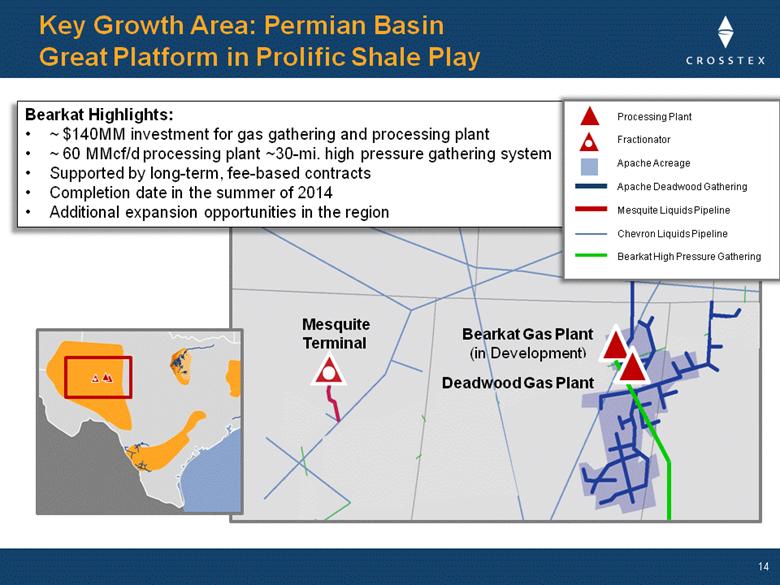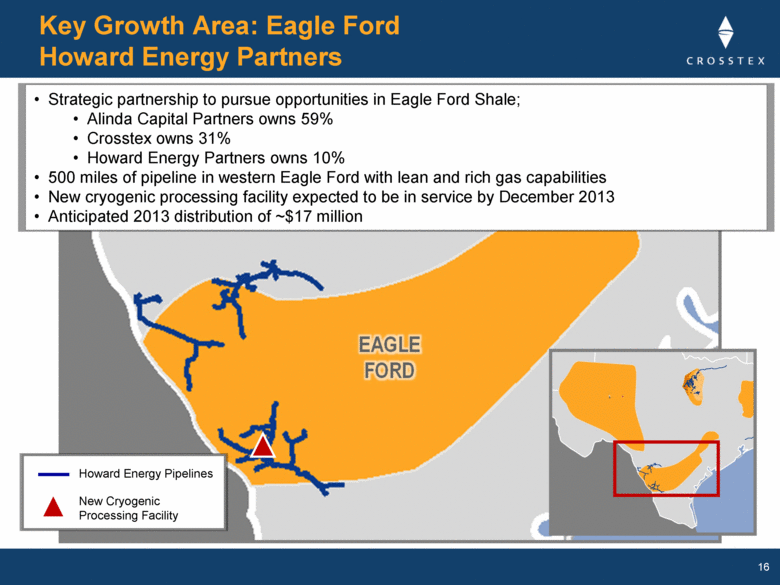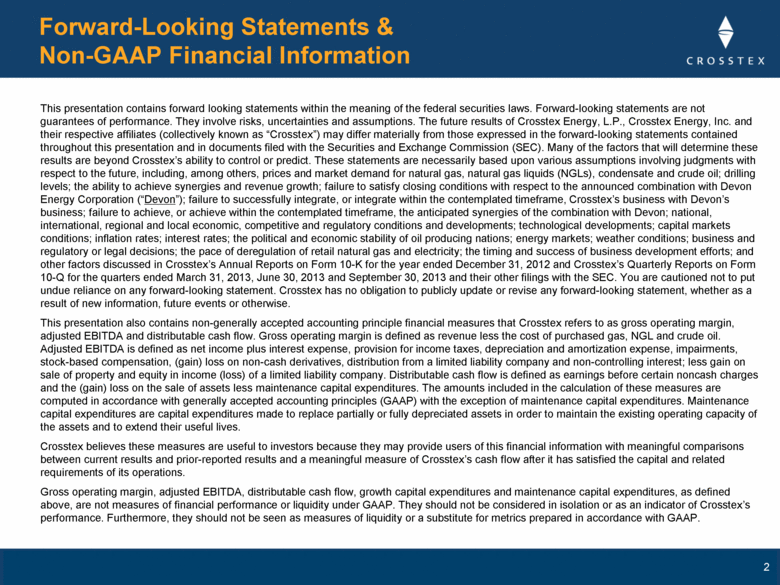
| Forward-Looking Statements & Non-GAAP Financial Information This presentation contains forward looking statements within the meaning of the federal securities laws. Forward-looking statements are not guarantees of performance. They involve risks, uncertainties and assumptions. The future results of Crosstex Energy, L.P., Crosstex Energy, Inc. and their respective affiliates (collectively known as “Crosstex”) may differ materially from those expressed in the forward-looking statements contained throughout this presentation and in documents filed with the Securities and Exchange Commission (SEC). Many of the factors that will determine these results are beyond Crosstex’s ability to control or predict. These statements are necessarily based upon various assumptions involving judgments with respect to the future, including, among others, prices and market demand for natural gas, natural gas liquids (NGLs), condensate and crude oil; drilling levels; the ability to achieve synergies and revenue growth; failure to satisfy closing conditions with respect to the announced combination with Devon Energy Corporation (“Devon”); failure to successfully integrate, or integrate within the contemplated timeframe, Crosstex’s business with Devon’s business; failure to achieve, or achieve within the contemplated timeframe, the anticipated synergies of the combination with Devon; national, international, regional and local economic, competitive and regulatory conditions and developments; technological developments; capital markets conditions; inflation rates; interest rates; the political and economic stability of oil producing nations; energy markets; weather conditions; business and regulatory or legal decisions; the pace of deregulation of retail natural gas and electricity; the timing and success of business development efforts; and other factors discussed in Crosstex’s Annual Reports on Form 10-K for the year ended December 31, 2012 and Crosstex’s Quarterly Reports on Form 10-Q for the quarters ended March 31, 2013, June 30, 2013 and September 30, 2013 and their other filings with the SEC. You are cautioned not to put undue reliance on any forward-looking statement. Crosstex has no obligation to publicly update or revise any forward-looking statement, whether as a result of new information, future events or otherwise. This presentation also contains non-generally accepted accounting principle financial measures that Crosstex refers to as gross operating margin, adjusted EBITDA and distributable cash flow. Gross operating margin is defined as revenue less the cost of purchased gas, NGL and crude oil. Adjusted EBITDA is defined as net income plus interest expense, provision for income taxes, depreciation and amortization expense, impairments, stock-based compensation, (gain) loss on non-cash derivatives, distribution from a limited liability company and non-controlling interest; less gain on sale of property and equity in income (loss) of a limited liability company. Distributable cash flow is defined as earnings before certain noncash charges and the (gain) loss on the sale of assets less maintenance capital expenditures. The amounts included in the calculation of these measures are computed in accordance with generally accepted accounting principles (GAAP) with the exception of maintenance capital expenditures. Maintenance capital expenditures are capital expenditures made to replace partially or fully depreciated assets in order to maintain the existing operating capacity of the assets and to extend their useful lives. Crosstex believes these measures are useful to investors because they may provide users of this financial information with meaningful comparisons between current results and prior-reported results and a meaningful measure of Crosstex’s cash flow after it has satisfied the capital and related requirements of its operations. Gross operating margin, adjusted EBITDA, distributable cash flow, growth capital expenditures and maintenance capital expenditures, as defined above, are not measures of financial performance or liquidity under GAAP. They should not be considered in isolation or as an indicator of Crosstex’s performance. Furthermore, they should not be seen as measures of liquidity or a substitute for metrics prepared in accordance with GAAP. 2 |


